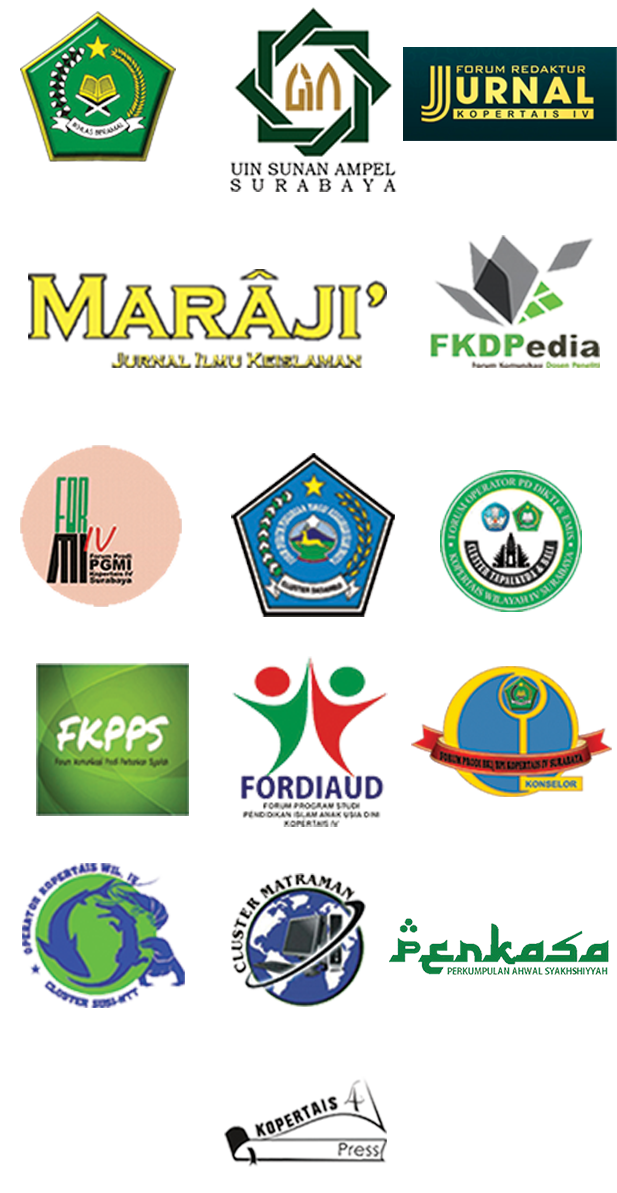Use of Social Media to Improve Religious Moderation Among Youth
(Case Study of Fahrudin Faiz on Youtube)
Abstract
Indonesia consists of various tribes that have cultural, racial and religious diversity. The diversity of the Indonesian nation has proven to be a strong foundation for development. Social media has proven to be a powerful tool in various social movements. Social media also has the potential to be a driver of paradigm change. Fahrudin Faiz's YouTube content which contains life and religious motivation can be used as an alternative solution.The purpose of this research is to determine the use of social media to increase audience religious moderation. The theory used is the Elaboration Likelihood Model, explaining how a message can change attitudes (or produce resistance to change) by making someone think hard about the points made (using central processing). This research uses the case study method of Fahrudin Faiz's YouTube content. Data was collected through interviews with UPI YAI Jakarta students. The research results showed that the informants after watching Fahrudin Faiz's YouTube content gained additional insight into religious moderation and motivation which was useful when they had to face problems in their lives.
Downloads
References
Berger, Charles R, dkk. 2015. Handbook Ilmu Komunikasi. Bandung: Nusa Media.
Cahyono, A. (2019). Menciptakan Sebuah Kekuatan Komunikasi Efektif: Unggul Berkomunikasi. Jawa Timur: Uwais Inspirasi Indonesia.
Campbell,Richard; Martin, Christopher R.; Fabos ,Bettina. 2016. Media & Culture Mass Communication in a Digital Age,10th Ed. Bedford/St. Martin’s, 75 Arlington Street, Boston, MA 02116
Creswell, John W.2014.Research design: qualitative, quantitative, and mixed methods approaches .4th ed. by SAGE Publications, Inc
Fitri,A.N (2021) Pengaplikasian Elaborated Likelihood Model dalam strategi Komunikasi Kampanye “Ingat Pesan Ibu” Journal vol 15 No 2 September 2021
Griffin, E. (2019). A First Look at Communication Theory. United States of America: McGraw-Hill Education
Hasan, Mustaqim ( 2021) prinsip moderasi beragama dalam kehidupan berbangsa
https://journal.an-nur.ac.id/index.php/mubtadiin/article/view/104
Kotler, P. & Keller, K.L. (2012), Manajemen Pemasaran Jilid I Edisi ke 12. Jakarta: Erlangga.
Liliweri, A. (2015). Pengantar Studi Ilmu Kebudayaan. Bandung: Nusa Media.
Littlejohn, S. W. (2011). Theory of Human Communications.
Moleong, Lexy J, 2018. Metodologi Penelitian Kualitatif. Bandung: Remaja Rosdakarya
Nasrullah, R. (2015). Media Sosial Perspektif Komunikasi, Budaya dan Sosioteknologi. Bandung: Simbiosa Rekatama Media.
Pratiwi,Citra &Yunarti, Susi 2023, Persepsi dan Pemahaman Mahasiswa Mengenai UU ITE IKRAITH-Humaniora, Vol 7 No 2 Juli 2023
Sugiyono. (2013). Metode Penelitian Kuantitatif Kualitatif Dan R&D. Bandung : Alfabeta.
Suimi Fales, Iwan Romadhan Sitorus ( 2022), Moderasi beragama: wacana dan implementasi dalam kehidupan berbangsa dan bernegara di indonesia
https://ejournal.iainbengkulu.ac.id/index.php/manthiq/article/view/9916
Sumartias1; Alimuddin Unde2; Prameswari Wibisana3; Ruchiat Nugraha. The Importance of Local Wisdom in Building National Character in the Industrial Age 4.0.
rd International Conference on Learning Innovation and Quality Education (ICLIQE 2019) Advances in Social Science, Education and Humanities Research, volume 397
Washilatun Novia dan Wasehudin Wasehudin Penggunaan Media Sosial dalam Membangun Moderasi Beragama di Masa Pandemi Covid-19 di Kota Tangerang
https://journal.uinsgd.ac.id/index.php/hanifiya/article/view/10017
Copyright (c) 2024 Susi Yunarti, Dian Harmaningsih, Wijayanti Wijayanti

This work is licensed under a Creative Commons Attribution-ShareAlike 4.0 International License.









